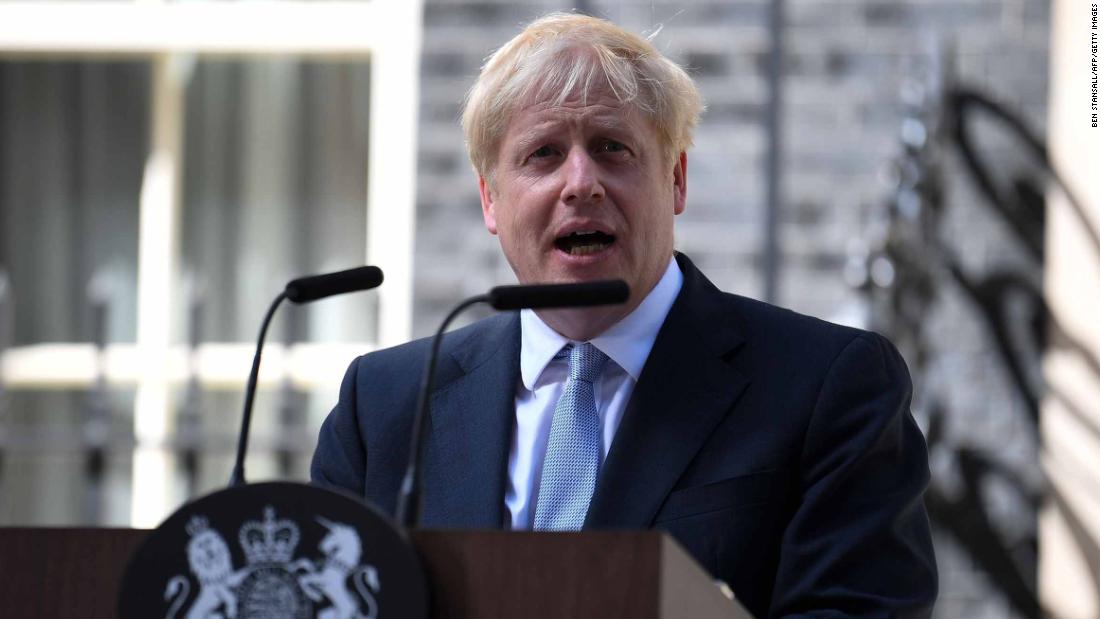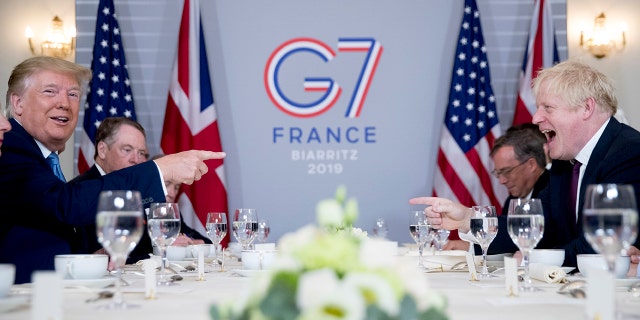LONDON (Reuters) - Prime Minister Boris Johnson’s government on Thursday challenged opponents of Brexit in parliament to collapse the government or change the law if they wanted to thwart Britain’s exit from the European Union.
A pro-Brexit supporter carries a banner during an anti-Brexit protest, outside the Houses of Parliament in London, Britain August 28, 2019. REUTERS/Henry Nicholls
More than three years since the Brexit referendum, the United Kingdom is heading toward its gravest constitutional crisis in decades and a showdown with the EU over Brexit due in just 63 days time.
In his boldest step since becoming prime minister last month, Johnson enraged opponents of a no-deal Brexit on Wednesday by ordering the suspension of parliament for almost a month.
The speaker of the lower house of parliament, John Bercow, said that was a constitutional outrage as it limited the time the 800-year-old heart of English democracy has to debate and shape the course of British history.
But Jacob Rees-Mogg, the Brexit supporter who is in charge of managing government business in parliament, dared opponents to do their worst.
“All these people who are wailing and gnashing of teeth know that there are two ways of doing what they want to do,” Rees-Mogg told the BBC.
“One, is to change the government and the other is to change the law. If they do either of those that will then have an effect.
“If they don’t have either the courage or the gumption to do either of those then we will leave on the 31st of October in accordance with the referendum result.”
Johnson’s move to suspend parliament for longer than usual at one of the most crucial junctures in recent British history was cheered by U.S. President Donald Trump but provoked criticism from some British lawmakers and media.
“Boris Johnson’s suspension of parliament is an affront to democracy,” The Financial Times said in an editorial.
TORTUOUS NEGOTIATIONS
After years of tortuous negotiations and a series of political crises since the United Kingdom voted 52% to 48% to leave the EU in the 2016 referendum, Brexit remains up in the air. Options range from an acrimonious divorce on Oct. 31 and an election to an amicable exit or even another referendum.
In effect, Johnson’s order to suspend parliament forces opponents of a no-deal Brexit in parliament to show their hand and act in as few as four days sitting next month. Parliament returns from its summer holiday on Sept. 3.
An election is likely.
“Boris is obviously preparing for an election,” said Conservative lawmaker Ken Clarke.
“He’s decided that he wants a people versus foreigners election, and a people versus parliament election, and he’s blustering away with ‘making this country the greatest country in the world’, patriotism, Donald Trump-style stuff.”
Johnson is also trying to convince the EU that his threat of a no-deal exit is real.
Britain’s opposition Labour Party will seek an emergency debate on Brexit next week, the party’s trade spokesman Barry Gardiner said, outlining plans which could give them an opening to pass legislation to block a no-deal Brexit.
“On Monday, we will introduce what is known as a Standing Order Section 24 Motion and that would be to try and have an emergency debate,” Gardiner told Sky News.
There is a small majority against a no-deal Brexit in the 650-seat House of Commons though it is unclear if opponents of Johnson within the Conservative Party would collapse his government in a vote of no confidence.
Editing by Janet Lawrence
https://www.reuters.com/article/us-britain-eu-idUSKCN1VJ0JX
2019-08-29 06:36:00Z
52780365331487




